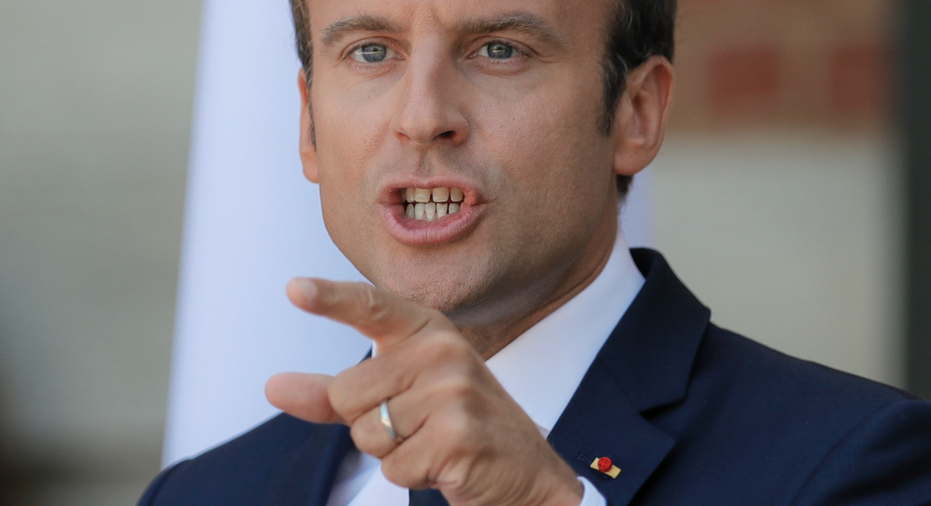Row escalates between France, Poland over EU labor reforms

VARNA, Bulgaria – A bitter exchange of words erupted between France and Poland on Friday after French President Emmanuel Macron sharply criticized Poland's opposition to plans to change European Union rules on "posted workers" — the cheap labor from eastern countries sent to more prosperous EU nations.
On a trip Friday to Bulgaria, Macron said the Polish reluctance to reform the bloc's labor rules is "an illustration of the mistakes made by this government."
His comments came on the final leg of a three-day visit to Central and Eastern Europe that has included meetings with Austrian, Czech, Slovak and Romanian leaders but not with Polish officials.
"Poland has decided to isolate itself from Europe and its refusal to revise this directive doesn't change my confidence in (getting) a positive outcome" on the rules change, Macron said, adding Poles "deserved better."
"The (Polish) prime minister will have difficulty explaining why it's good to pay the Poles badly," Macron said.
Poland is the largest source of posted workers, about 300,000 to 400,000 a year. Critics say having posted workers leads to lower wages and fewer jobs for workers from wealthy nations and reduces the taxes coming in to fund social programs in wealthy nations.
Polish Prime Minister Beata Szydlo hit back, calling the French leader's criticism "arrogant," advising him to "mind the business of his own country." She also accused France of trying to "take apart one of the pillars of the EU" — the free movement of workers among the bloc's 28 nations.
"The future of Europe will not be decided by the president of France, or by any other individual leader, but jointly, by all the member states," she said.
Later Friday, Poland's deputy foreign minister urgently summoned a French diplomat to express his "indignation" over Macron's criticism of the Polish government.
On Thursday, Szydlo vowed to defend "Poland's interests and Poland's workers," but added that "all member states are putting their heads together" over the issue.
Posted workers, while abroad, continue to pay into the tax and social security systems of their home countries, allowing their employers to hire them for less than workers in Western countries where government taxes are generally higher. The largest number work in construction, but many also work caring for the elderly.
Macron, said Poland "cannot be the country that gives Europe its direction."
Bulgarian President Rumen Radev said it was important not to violate the EU's basic principle of free movement when it considers changes to rules on posted workers. He said new rules should seek a balance between the older and newer EU members, such as Poland, Bulgaria and Romania.
Radev said he shared Macron's "anguish about social dumping."
"Bulgaria is against all social security fraud," he said.
Bulgaria's prime minister said he regretted divisions that have emerged in the EU over the issue.
"Poland and Hungary are our friends and it is fatal that there is such confrontation in the European Union," said Prime Minister Boyko Borisov Friday after talks with Macron.
Borisov said officials would discuss the issue with Szydlo when she visits Bulgaria in September. He said Bulgaria wanted a solution on posted workers before it takes over the rotating presidency of the EU on Jan. 1, 2018.
An estimated few thousand Bulgarian workers have relocated to other EU states working in construction, trucking and shipbuilding.
Macron and Borisov also discussed business, investment and Europe's passport-free Schengen travel zone, which Bulgaria wants to join. Bulgaria also wants to join the Paris-based Organization for Economic Co-operation and Development, an international organization representing many of the globe's advanced economies.
The leaders discussed defense issues and Bulgaria's plans to upgrade its military, spending 1.8 billion euros ($2.12 billion) on new hardware between 2017 and 2029.
___
Scislowska reported from Warsaw, Poland. Veselin Toshkov in Sofia, Bulgaria, Sylvie Corbet in Paris and Vanessa Gera in Warsaw also contributed to this report.



















